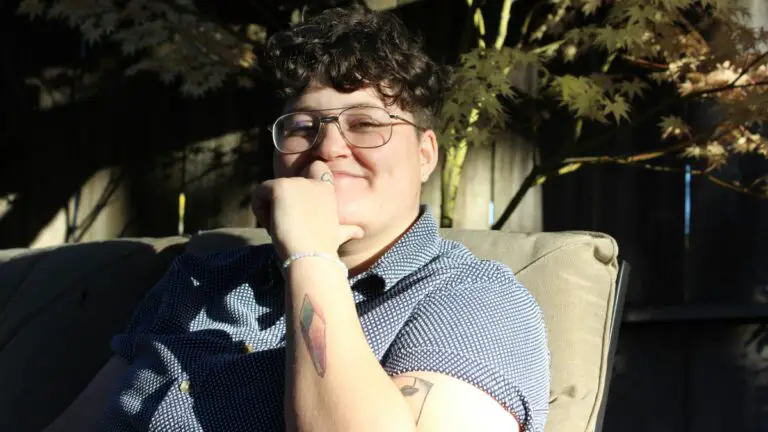Every time I visit a new doctor, sometimes even ones I’ve seen before, I play a little game in my head. I call it: “How long until they tell me to lose weight or passive-aggressively ask about my diet and exercise habits?” Spoiler: it’s rarely past five minutes into the appointment.
I could walk in with a sore throat, a sprained wrist, or a migraine, doesn’t matter. Weight loss is the go-to prescription. It’s as if my body shows up before I do, taking up space and setting off alarm bells before I even open my mouth.

This obsession with shrinking plus size bodies has very little to do with actual health. It’s lazy medicine. It’s shallow wellness culture. It’s weight stigma in healthcare. It’s ableism. It’s fatphobia. And it’s extremely dangerous.
It’s time we rethink the entire damn thing.
Wellness ≠ Weight Loss
Here’s what’s wild: people still treat “health” and “thinness” like they’re interchangeable. But that idea crumbles the minute you look at real people.
You can be plus size and have excellent medical lab results, solid cardiovascular endurance, balanced hormones, and a joyful relationship with your body. You can also be thin and deeply unwell. Metabolically healthy obesity is real and so is the harm of equating thinness with wellness.
Health isn’t a size. It never has been. But the world hasn’t caught up.
When wellness influencers push detox teas and 1200-calorie diets, when doctors ignore symptoms until you drop a few pant sizes, when strangers in the comments section call weight acceptance “glorifying obesity,” what they’re really saying is: You don’t deserve care unless you conform.
And that’s not health. That’s weight stigma in healthcare and that’s harm and gaslighting wrapped up in an acai bowl.

This isn’t just anecdotal. Many fat patients report being dismissed by doctors, regardless of their actual symptoms or health history. And research shows that weight stigma in healthcare settings leads to avoidance of care and poorer outcomes.
The Real Cost of Fatphobia in Medicine
Let’s talk about the bodies that fall through the cracks.
Studies show that plus size people are less likely to receive appropriate screenings, less likely to be referred for imaging, and more likely to have their symptoms dismissed or misdiagnosed. Not because we’re inherently unhealthy, but because we’re unseen. Or maybe we’re too seen and only seen as a size, not a person.
Many providers are trained to assume “obesity” is the root cause of our problems. So they start there and ignore everything else. This is how weight stigma in healthcare shows up.

You don’t need a medical degree to understand that telling someone with undiagnosed PCOS to “just lose weight” isn’t treatment. Neither is saying, “Your joints wouldn’t hurt if you were smaller,” to someone with chronic pain.
That’s not care. That’s a cop-out.
My elbow pain? It has nothing to do with my size. It has everything to do with my past volleyball career. But you betcha it’s dismissed, EVERY. SINGLE. TIME.
This kind of dismissal can be deadly. There are countless stories, like this patient whose cancer was ignored until it progressed, all because doctors couldn’t see past their bias.
The BMI Problem
We know the Body Mass Index (BMI) is flawed and yet it’s still the standard in most clinics and hospitals.

Let’s be clear: it was developed in the 1830s by Adolphe Quetelet, a Belgian mathematician—not a doctor. It was designed to evaluate population trends, not individual health. It doesn’t account for muscle mass, bone density, genetics, race, age, gender, or lifestyle. And yet, it’s still used to determine who gets care—and who gets told to lose weight before they’re even examined.
The fact that many health professionals now critique the BMI hasn’t yet shifted the system. But it should.
So What Does Weight-Inclusive Wellness Look Like?
It looks like providers asking questions before prescribing shame.
It looks like movement that feels joyful, not punishing. It looks like nourishing your body without guilt. Exploring mental health without being gaslit. Setting goals that aren’t centered on becoming “less” of yourself.
It looks like choice. Autonomy. Consent. Collaboration.
It looks like the radical act of saying:
“My body deserves care and adequate medical treatment right now… not 50 pounds from now.”
Weight-inclusive care models like Health At Every Size (HAES) promote this approach. And studies show that fat-inclusive care leads to better health outcomes across the board.

For Anyone Who’s Been Told to Shrink
If you’ve been told you can’t be healthy unless you’re thin, I want you to know this:
You are not a failed thin person.
Read that again.
There is not a thinner version of you trapped inside, waiting to be “fixed.” You are not a problem. You are a person, fully and completely worthy of care, joy, movement, and medical treatment. Right now.
You don’t owe anyone weight loss before you receive care. You don’t owe anyone thinness. Or wellness. Or performative health.
That’s ableism. And we’re not doing that in 2025.
Next Time Someone Tells You to Lose Weight…
Remember this:
You are not the problem.
The system is.
With love,
Dr. Katelyn







Great article about helthcare and treatment of plus size women( people) .
Very reassuring to hear this from a plus size dr .
Will pass on to my daughters !